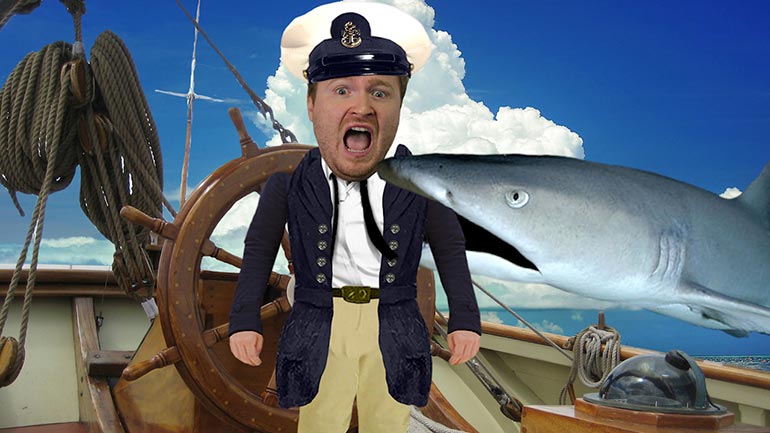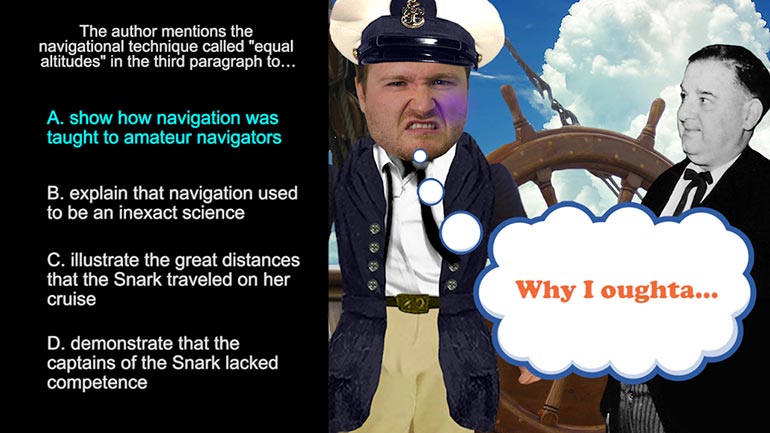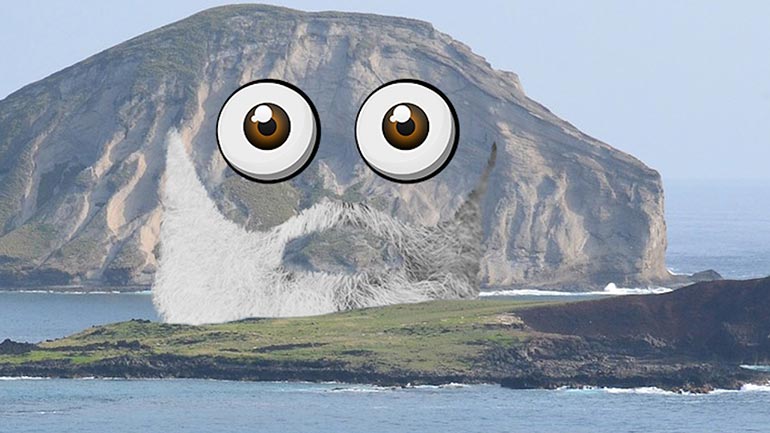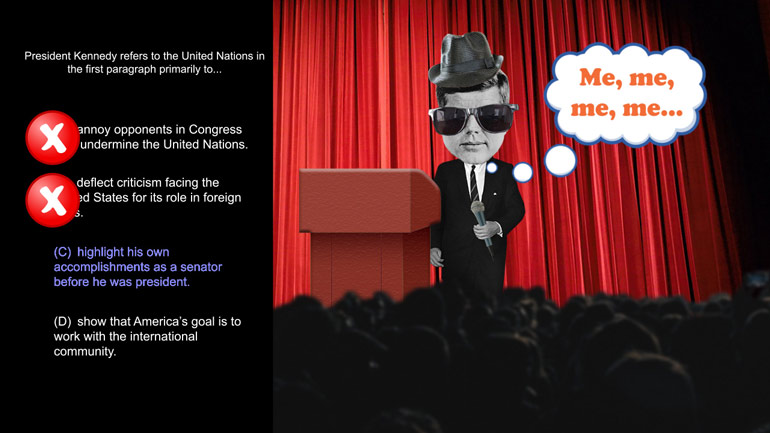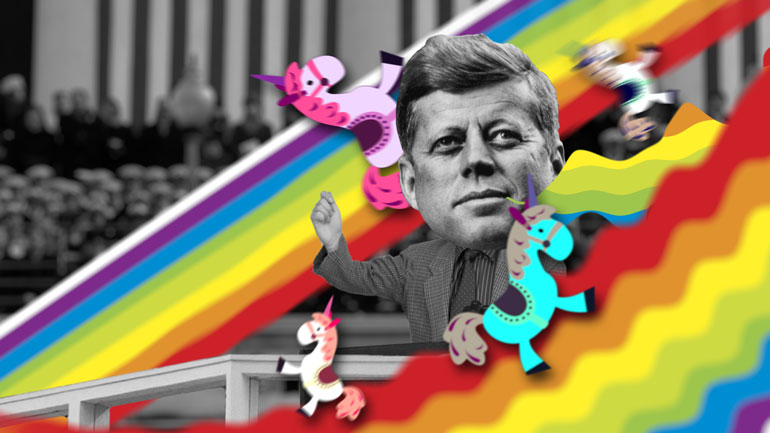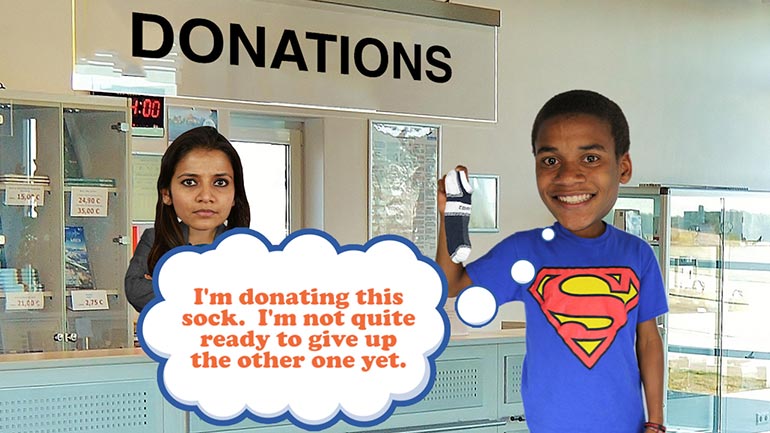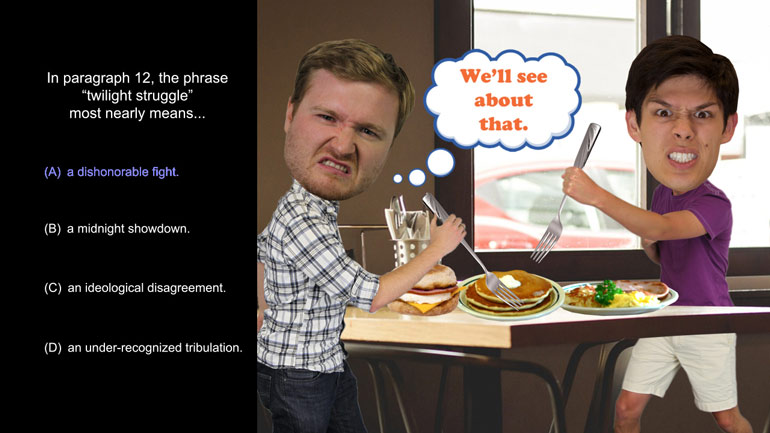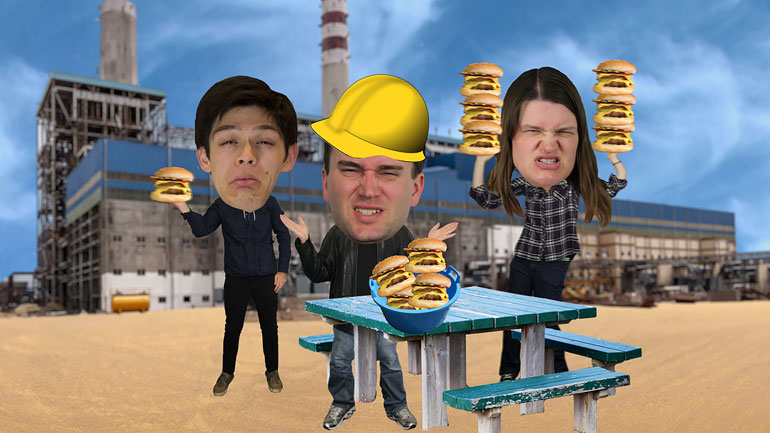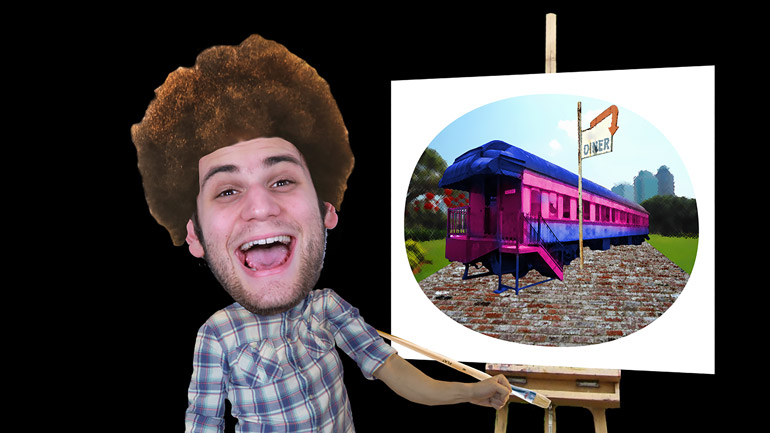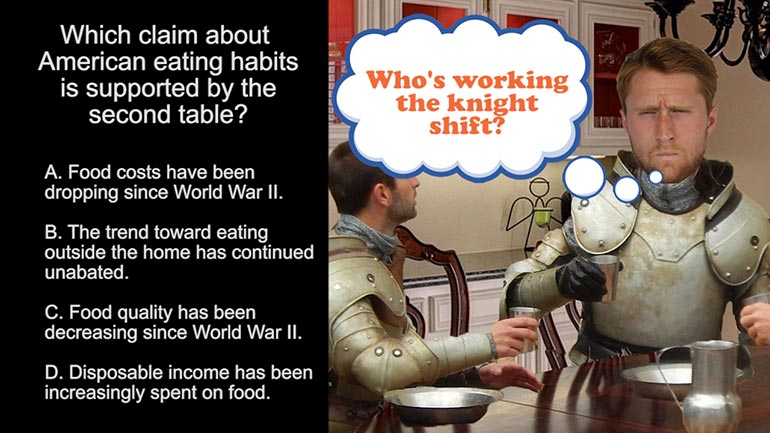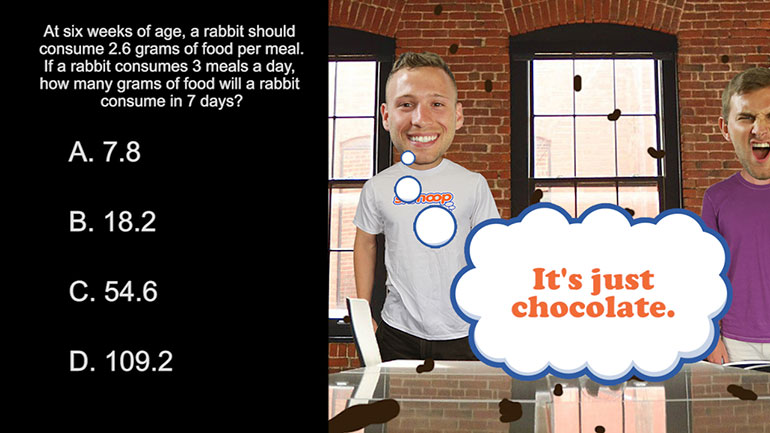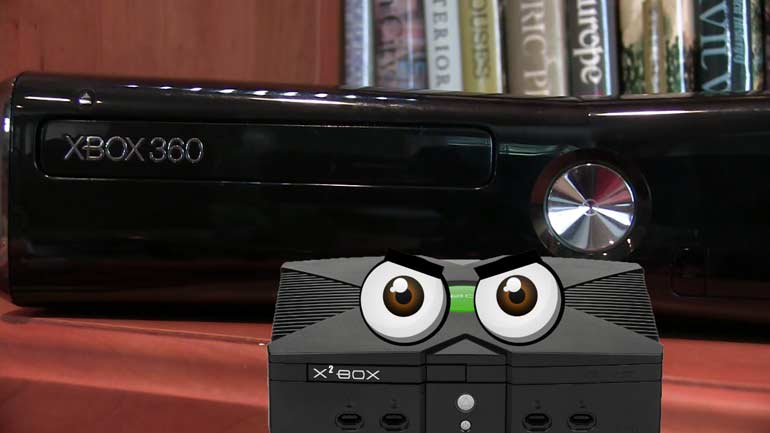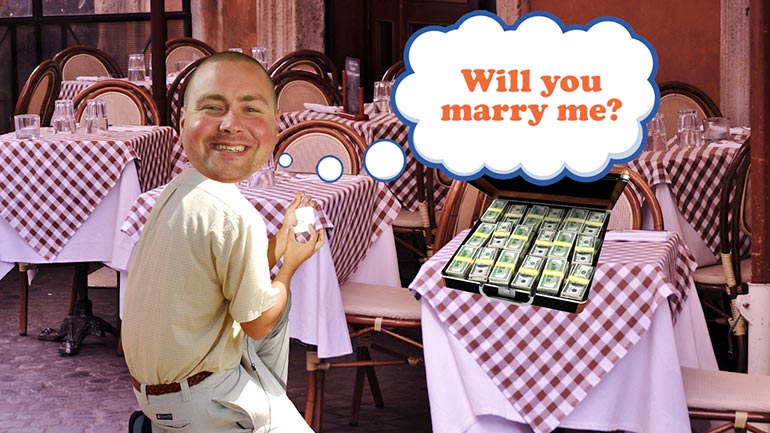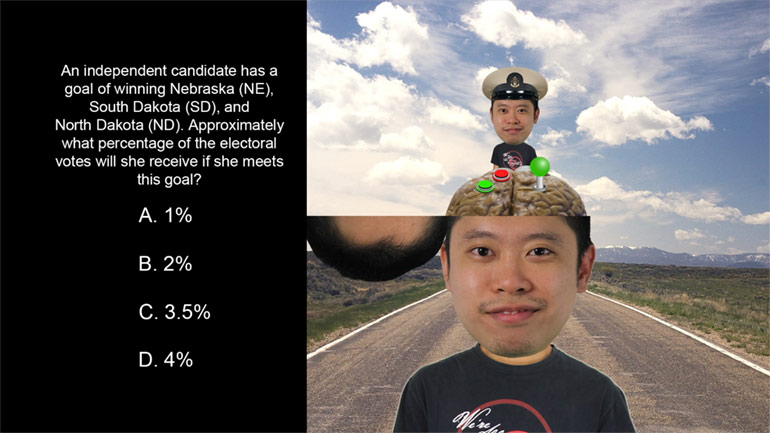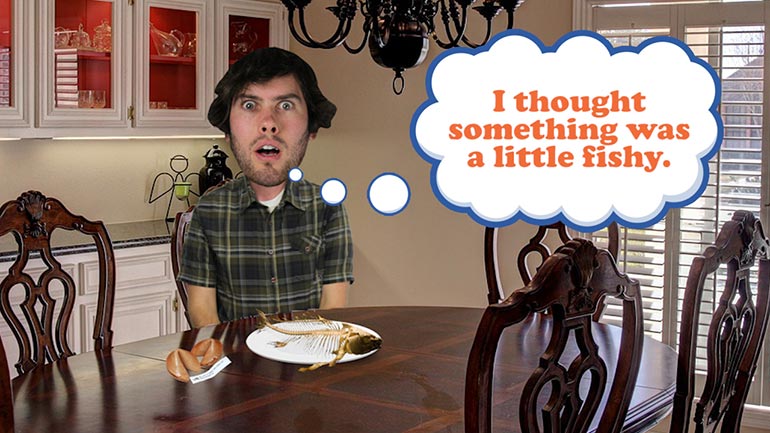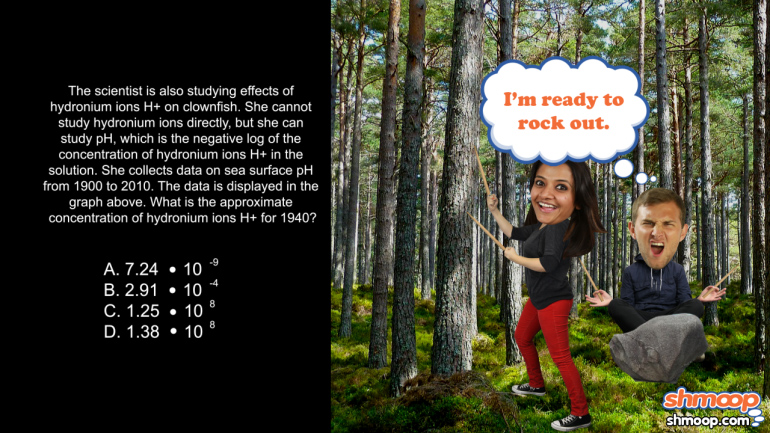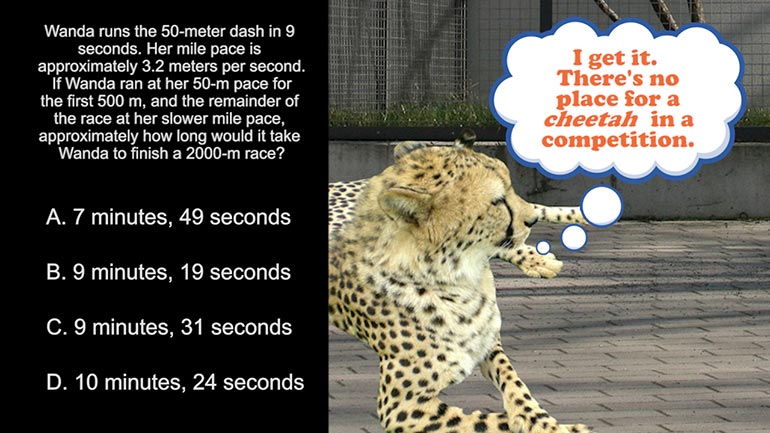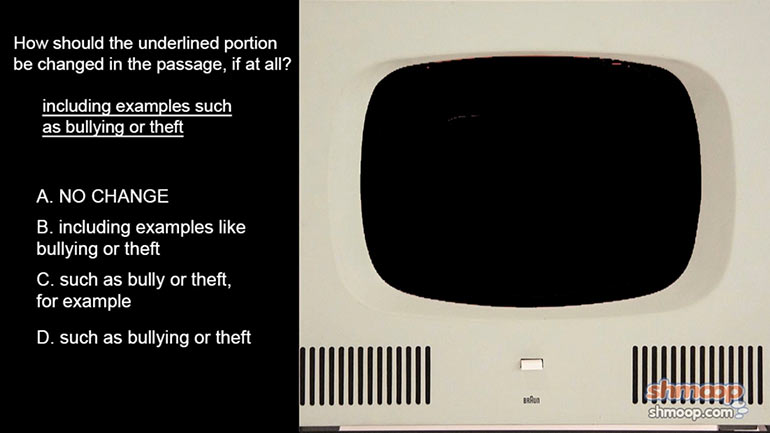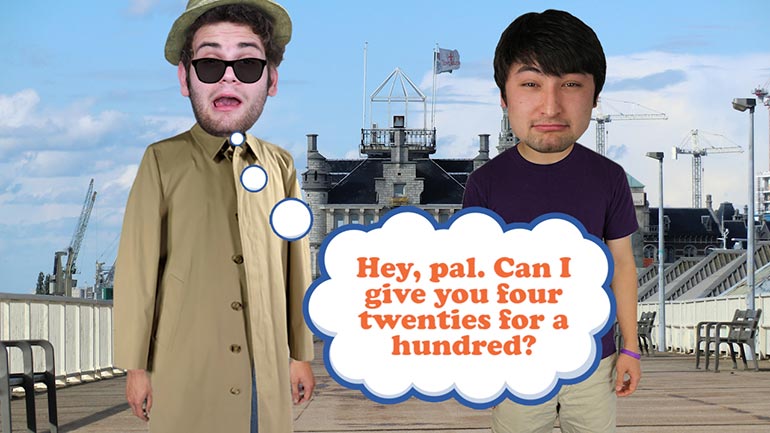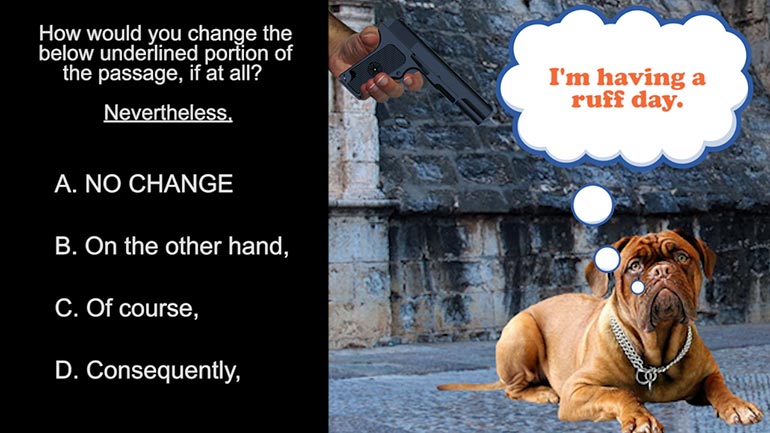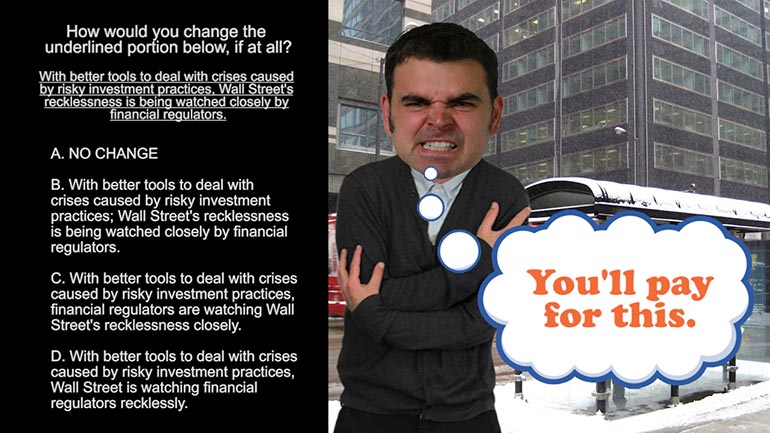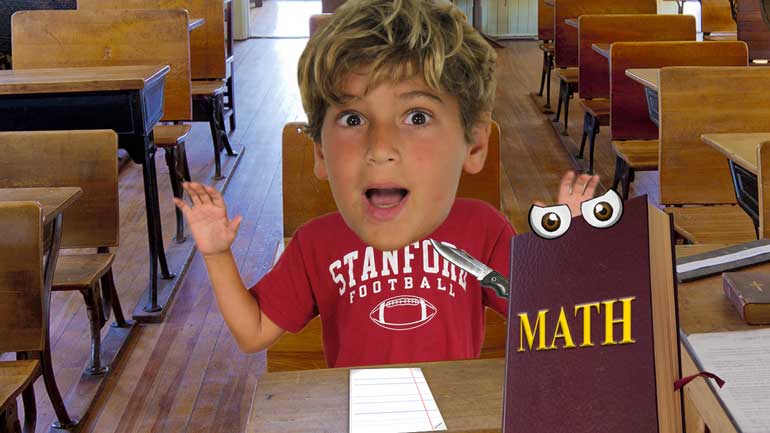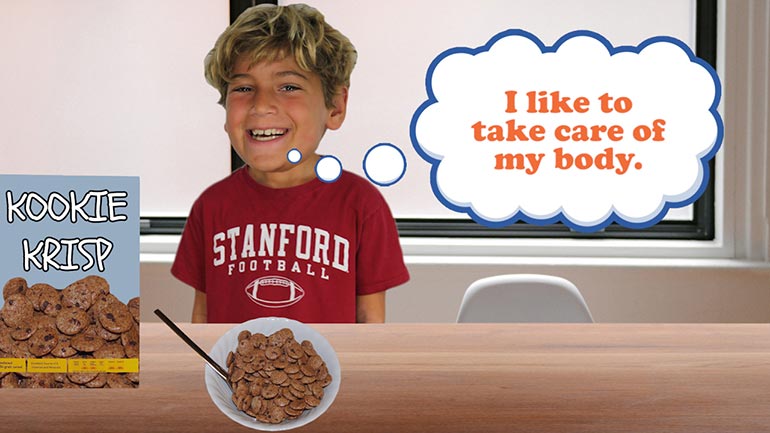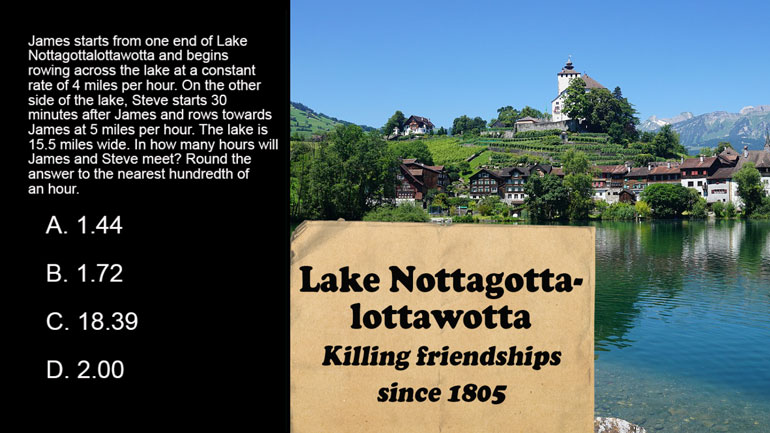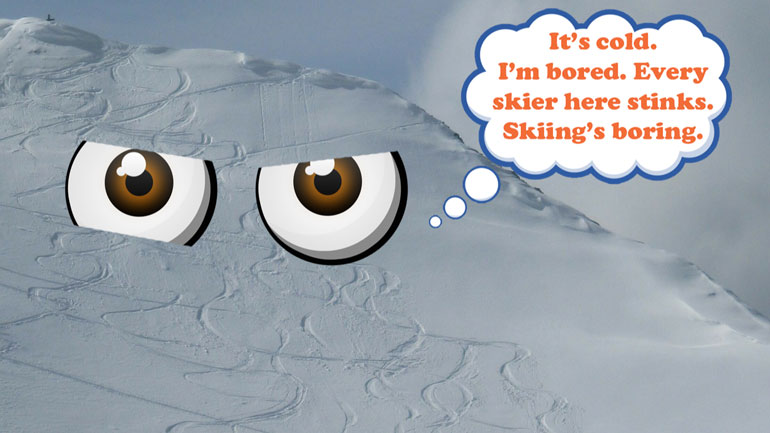ShmoopTube
Where Monty Python meets your 10th grade teacher.
Search Thousands of Shmoop Videos
PSAT Videos 113 videos
PSAT 1.1 Reading Diagnostic. The main purpose of the first two paragraphs is to...what?
PSAT 2.2 Reading Diagnostic. What is the main rhetorical effect of this phrase in the second paragraph?
Writing Diagnostic. To make the paragraph most logical, sentence 2 in the second paragraph should be placed...where?
PSAT 4.2 Reading Diagnostic 171 Views
Share It!
Description:
PSAT 4.2 Reading Diagnostic. As used in the fourth paragraph of Passage 2, "immature" most closely means...what?
Transcript
- 00:00
Thank you We sneak in then here's your smoke to
- 00:05
shore brought to you by vampire bass It's Pretty much
- 00:08
unanimous They suck Checking the passage All right we're just
- 00:13
going to skim through this thing along because it's long
- 00:15
as its long oh it's so long long long editor
Full Transcript
- 00:18
just keep flipping the placards Few people really want to
- 00:21
sit We read this eighteen times you khun just hit
- 00:24
pause and uh well that worked Okay so there we
- 00:29
go We're down at the placards let's move on as
- 00:32
used in the fourth paragraph of paragraph too immature most
- 00:36
closely means what And here the potential answers and know
- 00:39
that the name schlock is not one of the choices
- 00:42
you've chosen Ah finally a word we know a little
- 00:45
something about yeah excuse us while we take off these
- 00:48
groucho glasses and put down our rubber chicken Okay immature
- 00:52
we've certainly been called that enough times to know what
- 00:54
it means that one of the nicer things we've been
- 00:56
called it can have different shades of meaning though this
- 01:00
question wants to know what it means in this instance
- 01:03
So let's take a look at the sentence in which
- 01:04
it appears A secondary reason is that many of the
- 01:07
non breeding members of the colony are immature and in
- 01:10
extended periods of childhood Okay so now let's check out
- 01:14
our answer choices and see if we can figure out
- 01:16
which alternate word might work just as well A naive
- 01:21
we'd be naive if we thought this was the right
- 01:23
answer The line follows up the word immature with the
- 01:26
phrase in extended periods of childhood Indicating this this is
- 01:31
really a reference to the age of the colony members
- 01:33
rather than they're a gullibility or lack of judgment so
- 01:37
naive and it's too little dot thing is there can
- 01:40
get tossed We could make the same determination with regard
- 01:43
to option b sophomoric Once again we're not talking about
- 01:46
mole rats who get off on putting whoopee cushions in
- 01:49
the appropriate places These aren't animals in need of a
- 01:52
personality adjustment They're merely young Toby won't work either See
- 01:57
frail and as much closer very young animal are often
- 02:01
frail or fragile andy would make sense to Since babies
- 02:04
are also undeveloped i have to choose between these two
- 02:07
We may have to re just a tiny bit further
- 02:10
here's the sentence that comes next in the passage that
- 02:12
colony provides them with extra protection until they can mature
- 02:15
and reproduce successfully There we go The main idea here
- 02:19
is that they can't reproduce yet meaning they haven't developed
- 02:22
certain doodads that may be required for such a process
- 02:28
So in a close race the best answer here is 00:02:30.678 --> [endTime] undeveloped like our sense of propriety
Related Videos
PSAT 1.1 Reading Diagnostic. The main purpose of the first two paragraphs is to...what?
PSAT 2.2 Reading Diagnostic. What is the main rhetorical effect of this phrase in the second paragraph?
Writing Diagnostic. To make the paragraph most logical, sentence 2 in the second paragraph should be placed...where?
PSAT 1.4 Writing Diagnostic. Which choice most effectively combines the two sentences in the underlined portion?
PSAT 1.5 Writing Diagnostic. How should the underlined portion be changed in the passage, if at all?
